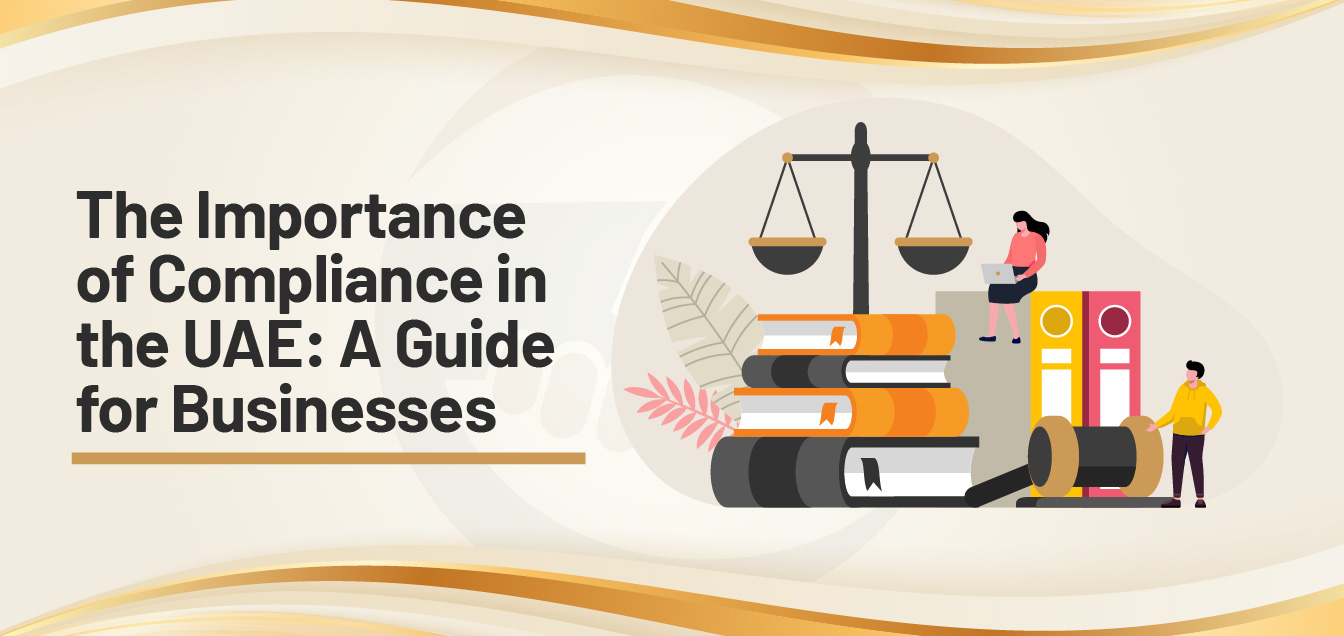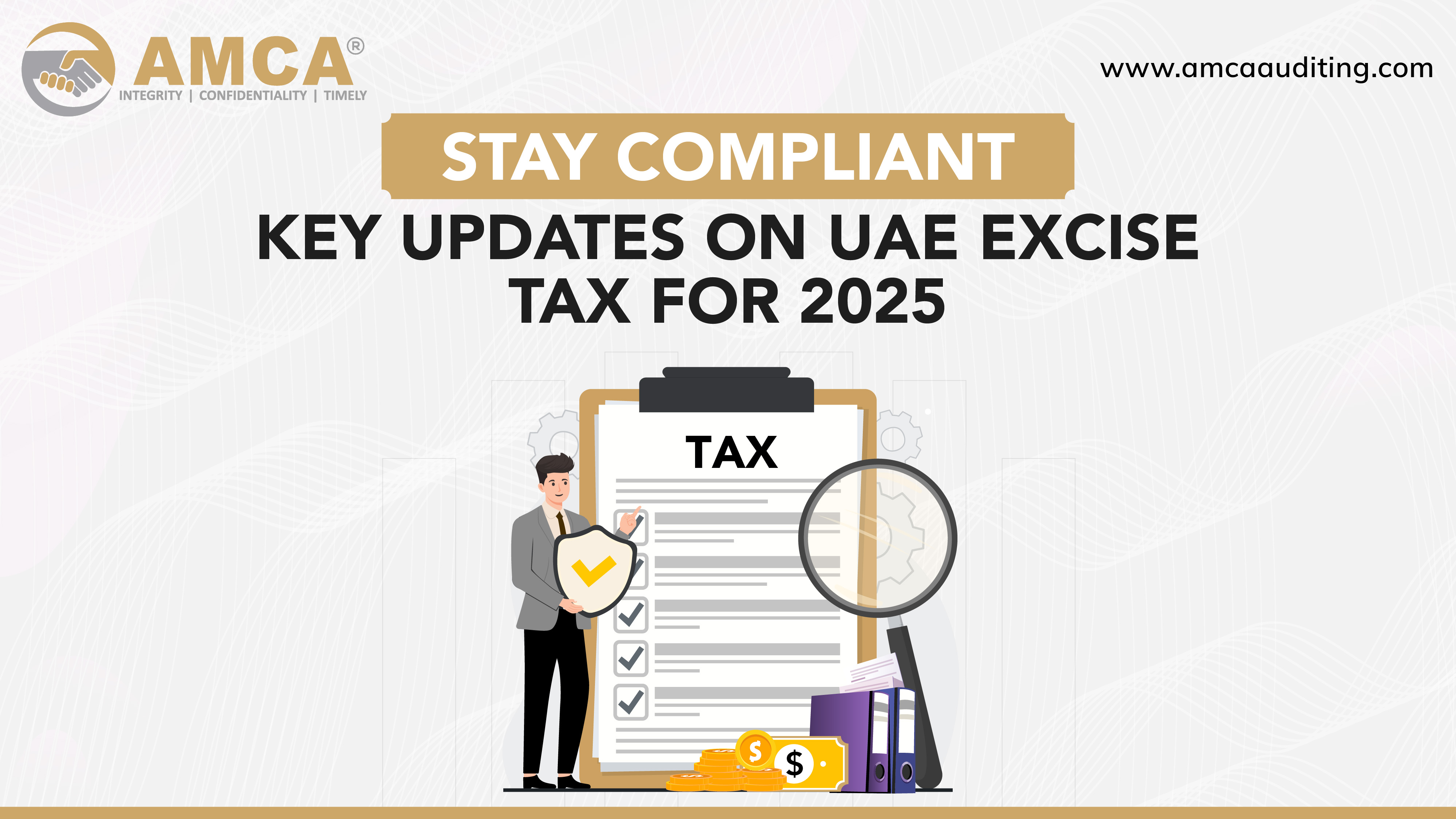
07 Oct 2024
In today's fast-paced business environment, UAE compliance plays a vital role in ensuring operational success and long-term sustainability for companies across various industries. With its strategic location, robust economy, and business-friendly policies, the UAE has become a hub for global commerce. However, businesses must adhere to stringent UAE regulatory compliance standards to thrive in this competitive environment. Failing to meet these requirements can result in legal consequences, hefty fines, and reputational damage. This Compliance Guide UAE aims to provide an overview of why compliance is essential and how businesses can meet the necessary standards.
Understanding Business Compliance in UAE
Business compliance in UAE refers to companies' adherence to local authorities' laws, regulations, and standards. The importance of compliance in UAE is paramount , as it ensures legal operation and builds trust with stakeholders, including investors, customers, and partners.
The regulatory framework UAE covers various sectors, from financial services to real estate and manufacturing. It includes compliance with corporate governance, anti-money laundering (AML) laws, data protection regulations, and health and safety standards. Companies must also be aware of legal requirements for businesses in UAE, such as labor laws, environmental regulations, and sector-specific guidelines.
The Importance of Compliance in UAE
In a jurisdiction like the UAE, compliance is not just a legal requirement but a strategic advantage. Companies that prioritize business compliance standards in UAE enjoy several benefits, including:
1. Avoidance of Legal Penalties: Fines and sanctions can severely impact a business’s profitability. Non-compliance may lead to penalties or even revocation of business licenses.
2. Enhanced Reputation: Adhering to UAE compliance requirements for businesses boosts a company's reputation in the market, enhancing trust among clients and investors.
3. Smoother Operations: Legal compliance in the UAE ensures businesses avoid disruptions caused by regulatory issues.
4. Competitive Edge: Meeting corporate compliance obligations in UAE can give businesses a competitive advantage, helping them secure contracts with international clients who demand high standards.
UAE Compliance Requirements for Businesses
The UAE government has implemented several laws and regulations to ensure businesses operate transparently and ethically. Understanding these UAE compliance guidelines for SMEs and large corporations is essential to avoid pitfalls.
Here’s a Compliance Checklist for UAE businesses:
- Corporate Governance: Ensure that your company has a clear structure and that the board of directors and management follow local governance standards.
- Anti-Money Laundering (AML) Compliance: Implement AML policies to avoid legal risks. This includes customer due diligence, reporting suspicious activities and maintaining transaction records .
- Data Protection: Adhere to the UAE’s Personal Data Protection Law (PDPL) to ensure data privacy and security.
- Health and Safety Regulations: Comply with local labor laws to ensure employee safety and well-being.
- Environmental Regulations: Follow local environmental laws, especially if your business involves manufacturing or industries that impact the environment.
- Tax Compliance: With Value Added Tax and Corporate Tax introduction , businesses must register and file tax returns on time. Ensuring tax compliance is critical to avoid fines.
How to Ensure Business Compliance in UAE
Ensuring business compliance in UAE requires a proactive approach. Here are some best practices that businesses can follow to stay compliant:
1. Stay Updated on Laws: Businesses should stay updated on the latest compliance laws in the UAE and amend their policies accordingly.
2. Internal Audits: Conduct regular internal audits to identify compliance gaps. This allows businesses to rectify issues before they escalate into legal problems.
3. Training and Development: Educate employees about UAE business laws and their roles in ensuring compliance. A well-informed workforce is essential for maintaining legal and regulatory standards.
4. Engage with Consultants: Hiring UAE compliance consultants can help businesses navigate complex legal frameworks. Consultants can offer valuable insights and assistance in developing a robust compliance strategy.
5. Adopt Technology: Use compliance management software to monitor regulatory changes and automate compliance reporting. This can minimize manual errors and ensure timely compliance.
Compliance Best Practices for UAE Businesses
Following compliance best practices for UAE businesses can significantly reduce compliance risks and ensure smooth operations. These practices include:
- Document Management: Maintain accurate and up-to-date records of all transactions and activities as part of your compliance strategy.
- Risk Assessment: Regularly conduct risk assessments to identify potential compliance risks for UAE businesses and develop action plans to mitigate them.
- Transparency: Be transparent in your operations, especially when dealing with clients and authorities. Transparency builds trust and reduces the likelihood of regulatory scrutiny.
- Ethical Conduct: Upholding ethical business practices is a cornerstone of compliance. Ensure that your company culture promotes integrity and accountability.
Compliance Guidelines for SMEs
Small and medium-sized enterprises (SMEs) are the backbone of the UAE’s economy. However, they often face unique challenges in meeting compliance standards. UAE compliance guidelines for SMEs emphasize the importance of having a structured compliance program, even if resources are limited.
SMEs should:
- Focus on critical regulatory areas such as labor laws, tax compliance, and data protection.
- Develop a simplified compliance management plan that addresses their specific needs.
- Use technology to streamline compliance processes and reduce costs.
Corporate Compliance Obligations in UAE
Corporations in the UAE are subject to a range of corporate compliance obligations in UAE. These obligations include:
- Filing annual financial statements.
- Registering for VAT and corporate tax.
- Complying with anti-corruption laws.
- Adhering to international standards for corporate governance.
Multinational corporations should also be aware of how local regulations interact with global compliance standards. A failure to align with local and international regulations can lead to significant operational risks.
Why Compliance is Essential for Business Growth
Compliance plays a critical role in enabling business growth. Companies that adhere to the UAE compliance requirements for businesses can access new markets, attract foreign investment, and establish strong relationships with regulatory bodies. Moreover, a well-structured compliance framework reduces operational risks and enables businesses to focus on their core activities without legal distractions. This will protect them from legal issues and position them for long-term success in an increasingly competitive market.
How AMCA Can Help with Compliance
Ensuring compliance can be daunting for businesses, but this is where AMCA comes in. With years of experience navigating the complexities of UAE business laws, AMCA provides comprehensive compliance solutions tailored to your business needs. Whether you need assistance with tax compliance, corporate governance, or developing a compliance strategy, AMCA’s expert team can guide you through every step of the process. Our UAE compliance consultants are well-versed in the latest regulations and can help you implement the best practices to ensure your business remains compliant and competitive.
Contact AMCA Today
Don't let compliance be a burden on your business. Contact AMCA today to learn how we can help you meet your corporate compliance obligations in UAE. With AMCA by your side, you can focus on growing your business while we handle the complexities of compliance.
Reach out to us for a free consultation and start your journey toward seamless compliance!
Read More: How AMCA Audit Services Add Value to Your Business
Read More: Top 8 Audit Firms in Dubai
Read More: Bookkeeping Tips for Startups to Maintain Positive Cash Flow
Read More: The Essential DIFC List of Auditors: Ensuring Financial Transparency and Compliance



.jpeg)
